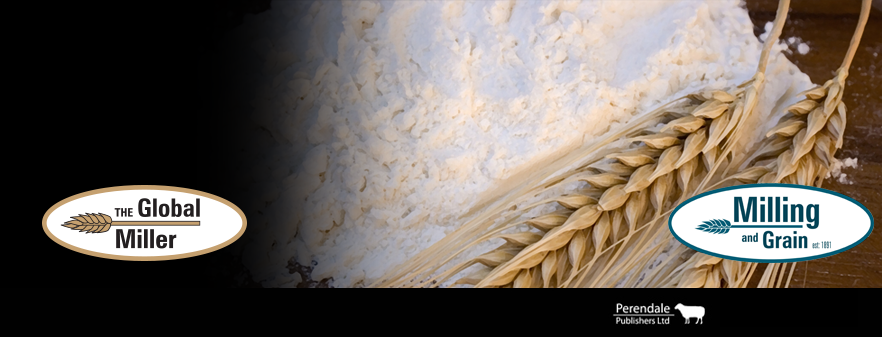by
Tip Keng Pong, Technical Director Stern Ingredients Asia, Roman Gradert, head
of the baking laboratory, Stern Ingredients Mexico, Christof Schricke, R &
D, Baking Applications, Mühlenchemie, Vladimir Wengorz, R & D, Baking
Applications Eastern Europe / Russia, Mühlenchemie.
Quality fluctuations are a “no-go” with burger buns. The international fast food chains expect their suppliers to maintain strict product standards. Four experts from the enzyme specialist Mühlenchemie explain from their own experience how similar burger buns can be produced around the globe – regardless of individual production conditions and the raw materials used.
In the summer of 2018, burger buns hit the headlines of the US press after the Texan fast food chain In-N-Out Burger decided to close it restaurants temporarily. The reason given was the poor quality of its burger buns. How can the milling and baking industry prevent such a fiasco?
What are the issues with burger bun production?
Quality fluctuations are a “no-go” with burger buns. The international fast food chains expect their suppliers to maintain strict product standards. Four experts from the enzyme specialist Mühlenchemie explain from their own experience how similar burger buns can be produced around the globe – regardless of individual production conditions and the raw materials used.
Tip Keng Pong, Technical Director for Stern Ingredients Asia says: The production of burger buns is no easy matter. There must be no noticeable deviations from the characteristics and appearance specified by the fast food restaurant chains.
Volume, texture, colour, taste – each bun must be exactly the same as the others. But since overall conditions vary enormously and every bakery works with different raw materials and equipment, problems sometimes occur nevertheless.
Where do the difficulties lie, then, in the production of burger buns?
Christof Schricke, Research & Development, Baking Applications, Mühlenchemie says: Burger buns are soft rolls with a high sugar and fat content. They must have an extremely soft, fluffy crumb and a fine texture. The whole bun should have a golden colour with very little white at the side.
The crust must have no cracks or blisters and should be evenly browned. In spite of their soft consistency, the buns have to be very robust. And the shape must be right, of course: for instance, the height of a standard bun is between 4.6 and 4.9 cm. That only gives you a margin of three millimetres.”
Read more HERE.
Quality fluctuations are a “no-go” with burger buns. The international fast food chains expect their suppliers to maintain strict product standards. Four experts from the enzyme specialist Mühlenchemie explain from their own experience how similar burger buns can be produced around the globe – regardless of individual production conditions and the raw materials used.
 |
| Image credit: Mühlenchemie |
In the summer of 2018, burger buns hit the headlines of the US press after the Texan fast food chain In-N-Out Burger decided to close it restaurants temporarily. The reason given was the poor quality of its burger buns. How can the milling and baking industry prevent such a fiasco?
What are the issues with burger bun production?
Quality fluctuations are a “no-go” with burger buns. The international fast food chains expect their suppliers to maintain strict product standards. Four experts from the enzyme specialist Mühlenchemie explain from their own experience how similar burger buns can be produced around the globe – regardless of individual production conditions and the raw materials used.
Tip Keng Pong, Technical Director for Stern Ingredients Asia says: The production of burger buns is no easy matter. There must be no noticeable deviations from the characteristics and appearance specified by the fast food restaurant chains.
Volume, texture, colour, taste – each bun must be exactly the same as the others. But since overall conditions vary enormously and every bakery works with different raw materials and equipment, problems sometimes occur nevertheless.
Where do the difficulties lie, then, in the production of burger buns?
Christof Schricke, Research & Development, Baking Applications, Mühlenchemie says: Burger buns are soft rolls with a high sugar and fat content. They must have an extremely soft, fluffy crumb and a fine texture. The whole bun should have a golden colour with very little white at the side.
The crust must have no cracks or blisters and should be evenly browned. In spite of their soft consistency, the buns have to be very robust. And the shape must be right, of course: for instance, the height of a standard bun is between 4.6 and 4.9 cm. That only gives you a margin of three millimetres.”
Read more HERE.
The Global Miller
This blog is maintained by The Global Miller staff and is supported by the magazine Milling and Grain
which is published by Perendale Publishers Limited.
For additional daily news from milling around the world: global-milling.com


















